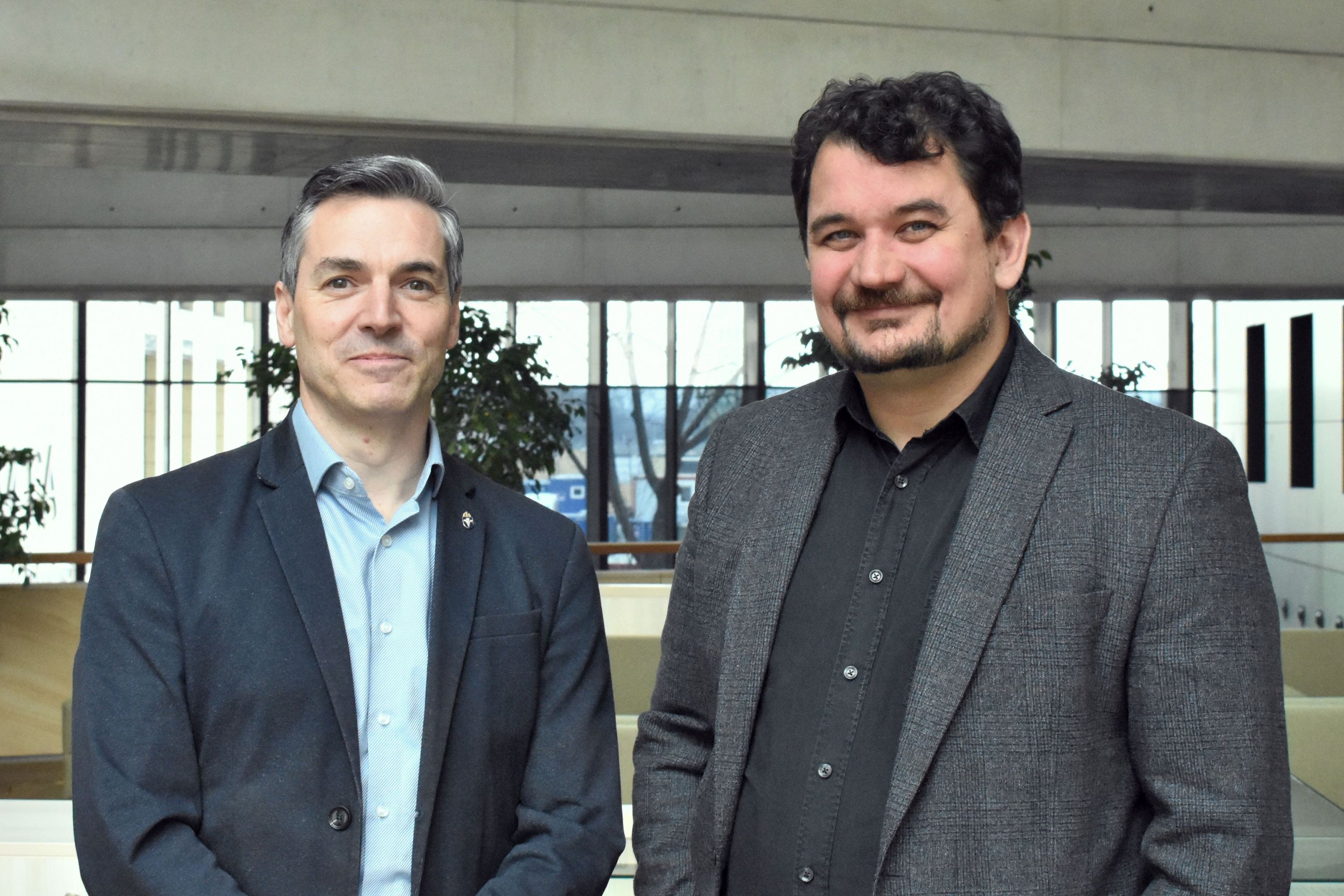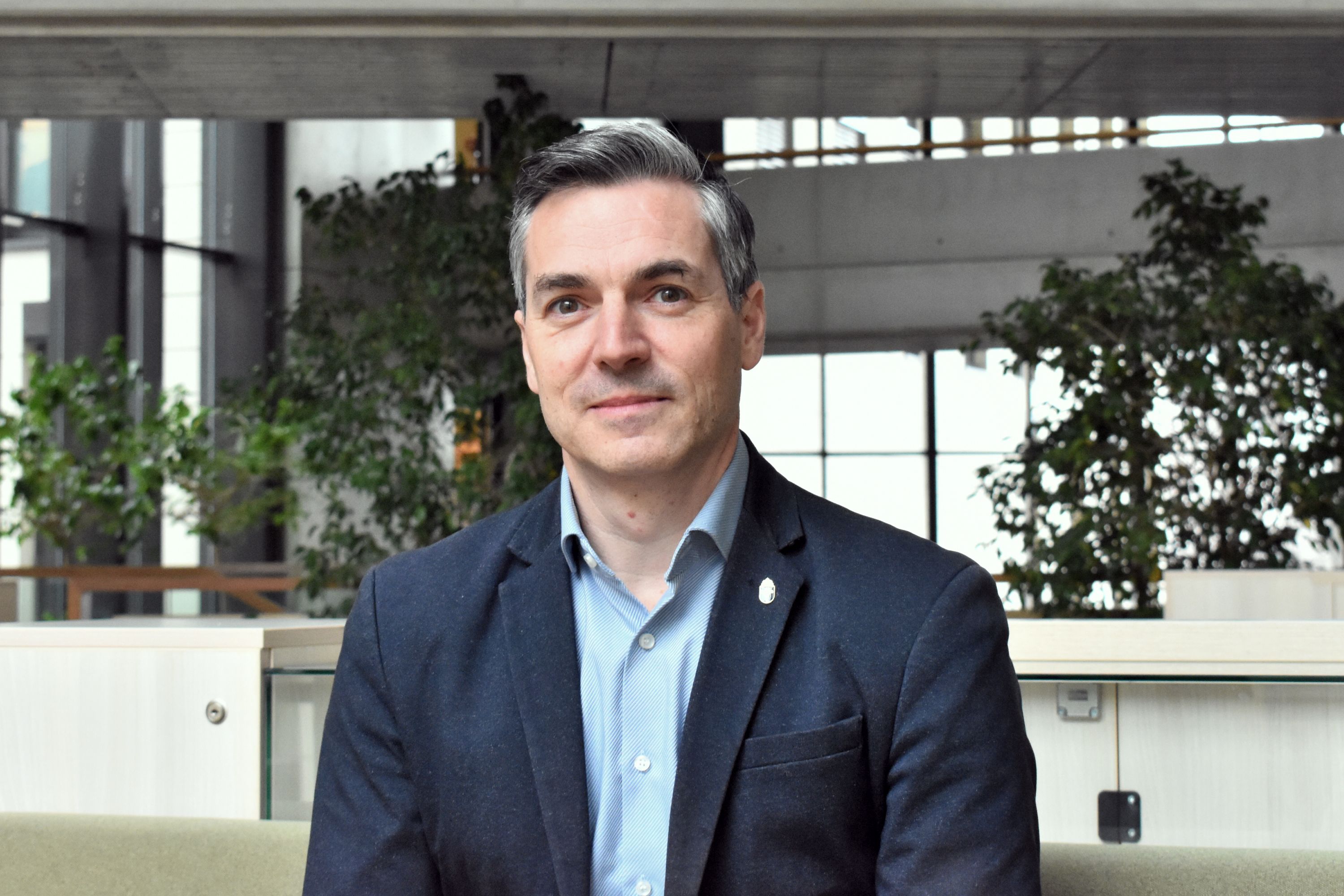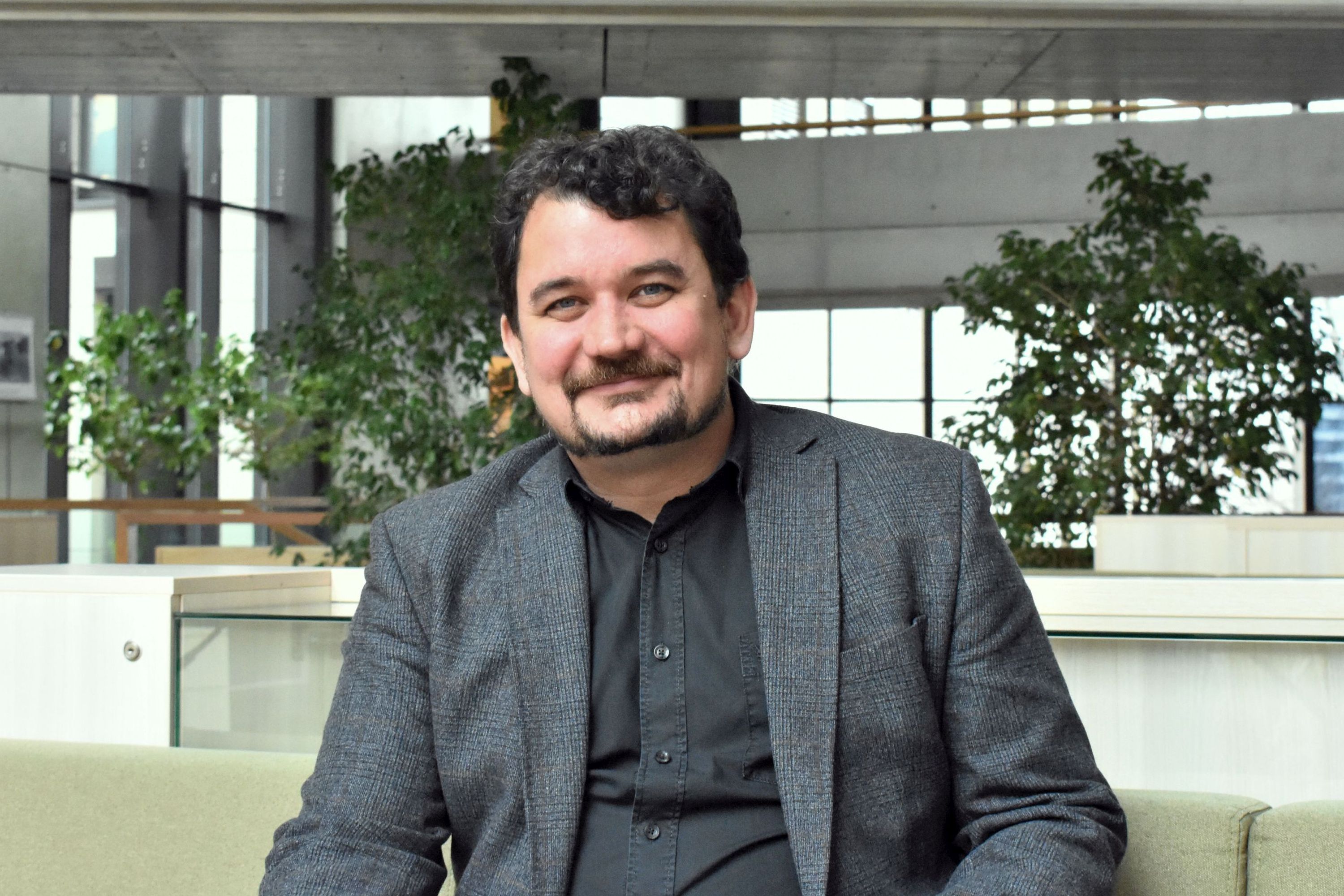András Fejérdy senior research fellow and deputy director, and Gábor Kármán senior research fellow at the Institute of History of the Research Centre for the Humanities won the European Research Council’s Consolidator Grant. In this call, 2,652 applicants submitted their proposals and 12% of them were succesful. In the history of European research funding, it is quite extraordinary that two researchers at the same time from a Central European research institute would receive the grant.
 András Fejérdy and Gábor Kármán
András Fejérdy and Gábor Kármán
The largest application system of the European Union supports exploratory projects of 313 winners with some €632 million, who will tackle major questions across all scientific disciplines. The future grantees will carry out their projects at universities and research centres across 24 EU Member States and associated countries. The winners represent 42 nationalities, with Germans (58 researchers), Italians (30) and French (26) leading the ranking in absolute numbers. The funding will support mid-career researchers and will help them consolidate their teams and conduct pioneering research on topics and with methods of their choosing. Part of the EU’s Horizon Europe programme, this new round of grants will create an estimated 1,900 jobs for postdoctoral fellows, PhD students and other staff at 189 host institutions.
President of the ERC Prof. Maria Leptin commented:
”Even in times of crisis and conflict and suffering, it is our duty to keep science on track and give our brightest minds free reign to explore their ideas. We do not know today how their work might revolutionise tomorrow - we do know that they will open up new horizons, satisfy our curiosity and most likely help us prepare for unpredictable future challenges. So, I am thrilled to see a new group of ERC grant winners funded for their scientific journey. I wish them the best of luck on their way to push the frontiers of our knowledge!”
The projects at the Institute of History, Research Centre for the Humanities
Why does the modern state, with its claim to sovereignty, care so much about secularization and (re)sacralization? In order to address this question, András Fejérdy’s project examines the (pre)history of the conflict-ridden relationship between transnational institutions and the modern state (with its claim to sovereignty) and also the players who stood at the point of intersection of the two by analysing the shifts in relations between the state and one of the oldest transnational institutions in the world, the Catholic Church. The project examines the conflicts between church and state and the various processes involved in attempts to address these conflicts first and foremost by studying the history of the oaths of loyalty that the pastors and head pastors of the Catholic Church were obliged to take and the tensions which arose because of these conflicts in the Habsburg Monarchy and its successor states between 1780 and 1990.
 András Fejérdy
András Fejérdy
Oaths of loyalty to the state bear the marks of the changing relationships between the nation state and the transnational Catholic Church and were generated directly through the negotiations of sovereignty among these actors. In order to understand the functions of the loyalty oaths and the motivations of the middle-level historical agents involved, the project will offer a comprehensive and contextual interpretation of oaths of loyalty in the context of Josephinism, nation building, and communism and their transformations in the context of the shifting relationships of the national, state, and transnational loyalties. Thus, it will provide much needed tools for a longue durée and comparative analysis of state-church relations in Central Eastern Europe. It will also discuss patterns of continuity and discontinuity between the church policy of different regimes, the common and different features of the role of Catholicism in nation building, and the related change of function of the Catholic hierarchy among the peoples of the Habsburg Monarchy.
The intention of the project is twofold. On the plane of social, cultural, and religious history, it will provide a model for deep, long-term contextual analysis of church-state relations in terms of secularization, secularism, re-sacralisation, nation building, elites, transition, transformation, and multiple loyalties. On the plane of global history, it will offer new insights into the roots and the prehistory of the conflicted relationship between transnational institutions and state sovereignty.
The aim of Gábor Kármán’s project is to answer the question what were the common characteristics of the diplomacy of small states in the border zone between the Ottoman Empire and Christianity in the sixteenth to eighteenth centuries. These political entities, including the Khanate of Crimea, the Voivodates of Moldavia and Wallachia, the Republic of Ragusa, the Principality of Transylvania, and Cossack Ukraine had to find their ways of surviving surrounded by generally hostile empires, preserve at least a certain amount of sovereignty and remain a recognizable political unit in spite of their, sometimes multiple, loyalties sworn to larger powers. We aim to identify patterns that were common among them in spite of the apparent differences between these small states in terms of legal traditions, forms of rulership, political cultures, and political languages, Ragusa being a Western Christian city state with old republican traditions, Wallachia and Moldavia Eastern Orthodox elective principalities and the Crimea a Muslim hereditary monarchy.
 Gábor Kármán
Gábor Kármán
The project will focus on four main research questions from a strongly comparative perspective. It will address the strategies of the small states’ rulers in the field of power politics to overcome their vulnerability and survive on the frontiers of empires and civilisations. It will also reflect on the specific diplomatic practices they were forced to apply due to their position at cultural borderlands and the position of weakness they had to accept when dealing with larger powers surrounding them. The third focus will be on their ways to overcome the problem of having to communicate and present themselves in two radically different political languages, i.e. the languages of their powerful Muslim and Christian neighbours, especially to explain their ties to the Ottoman world in a Christian environment. Last but not least, the project will also address the agents of foreign policy, the diplomats of the small states, and inquire how the status of the state they represented state influenced their personal career options and strategies. The international team of scholars in the project will produce a collective monograph on the early modern diplomacy of these small states, which will be supplemented by edited volumes built on a series of international conferences and workshops.
The ERC, set up by the European Union in 2007, is the premier European funding organisation for excellent frontier research. It funds creative researchers of any nationality and age, to run projects based across Europe. The ERC offers four core grant schemes: Starting Grants, Consolidator Grants, Advanced Grants and Synergy Grants. With its additional Proof of Concept Grant scheme, the ERC helps grantees to bridge the gap between their pioneering research and early phases of its commercialisation. The ERC is led by an independent governing body, the Scientific Council. Since 1 November 2021, Maria Leptin is the President of the ERC. The overall ERC budget from 2021 to 2027 is more than €16 billion, as part of the Horizon Europe programme, under the responsibility of the European Commissioner for Innovation, Research, Culture, Education and Youth, Mariya Gabriel.

